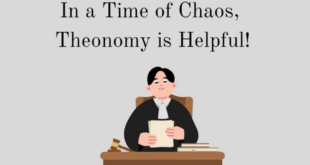Have you ever thought of how mankind has gotten where we have? Better yet, what direction we’re going? That’s what we’re going to tackle in this series. The following is a paper that was written for Belhaven University entitled Image of God, The Fall, Consequences. This is part 2 of 2:
Consequences of the Fall
Although, by God’s grace, mankind was not destroyed right at the moment of rebellion, the consequences on the rest of humanity and creation would still occur. As R. C. Sproul discussed, this “creature from the dirt defied an eternal, infinitely holy God…” would inevitably cause ramifications (yet not as severe as they deserved). (11) The woman would have painful childbirth while continuing to spread the image of God throughout the earth and man’s labor would be a loathsome chore in order to fulfill his duties. (12) Death enters the narrative as God kills an animal to cover mankind’s nakedness. This is an important facet of the story: in order for God to be a just and holy God, He can not allow sin to go unpunished. God stated that if they rebelled against His command they would die, yet they did not die. How is God justified in letting mankind go unpunished by death? A death occurred in their place. This event points forward to the atoning sacrifice that would be consummated in the death of Christ on the cross (Romans 3:21-26).
Since the Fall, mankind has always been in rebellion against their Creator. While reading the Bible, one would think mankind would have learned from their mistakes, but this wasn’t what transposed (such is the case of Cain and Abel in Genesis 4). Paul describes that the human condition, apart from God’s intervention, is in constant rebellion against God. Romans 3:10-12, 8:8 ESV states: “‘…None is righteous, no, not one; no one understands; no one seeks for God. All have turned aside; together they have become worthless; no one does good, not even one…’Those who are in the flesh cannot please God.” The pervasiveness of the failures of mankind is evident in every person. Mankind: inevitably replaces God with something else as the highest priority in their life (Matthew 22:36-40), is faithless to God Himself (Hebrews 11:6), and does not do everything to the glory of God (1 Corinthians 10:31). (13) Humans are utterly hopeless without God and this describes the reality we live in. While teaching Jonathan Edward’s take on the doctrine of Total Depravity, John Piper makes the distinction that mankind’s spiritual deadness is not a physical disability but instead is a moral inability- mankind wants something bad enough (namely, sin) and this drives mankind to the place where they cannot choose God (John 6:44). (14)
A greater reality
The reality of the Fall, and subsequently the deadness of the human soul, was not without its purpose within the sovereign reign of God. The deadness of the human condition and God’s intervening on their behalf takes away all human boasting, causing the believer to rely fully on God’s sufficiency as the One that can truly save them (Ephesians 2:1-9). (15) In fact, through the Fall, Christ’s redemption comes to bring about a greater reality than even before the Fall- namely that God’s Spirit has come to His believers in a more personable way and also that the New Creation in Revelation 21-22 will come to its consummation with a more glorious reality than the pre-Fall state. (16) Though stained with the consequences of the Fall, believers in Christ can rejoice and worship God for the hope of the greater reality that is yet to come in the consummation of God’s Kingdom.
Conclusion
In conclusion, understanding humanity’s beginning and how we got where we are today helps mankind to understand our need for a Savior and the overall direction history is moving toward. Scripture gives a complete and accurate explanation of the reality we live in today. The purpose of this paper was to discuss humanity’s creation in the image of God, the fall of humanity to sin, and the consequences of the fall into sin. Understanding human history through this lens should cause believers to praise His glorious grace for His great mercy and love that He has shown us through Christ Jesus (Ephesians 1:5-6).
Footnotes
11. R. C. Sproul, “Question and Answers #2: Baucham, Nichols, Sproul, Sproul Jr., and Thomas,”
accessed May 17, 2023, https://www.youtube.com/watch?v=drtmCuUJdwM
12. Frame, Systematic Theology: An Introduction to Christian Belief, 858-859.
13. Frame, Systematic Theology: An Introduction to Christian Belief, 863.
14. John Piper, “TULIP Session 4: Total Depravity-Unconditional Election,” accessed May 12,
2023, https://www.desiringgod.org/messages/total-depravity-unconditional-election-session-4
15. John Piper, “TULIP Session 5: Unconditional Election,” accessed May 10, 2023,
https://www.desiringgod.org/messages/unconditional-election-session-5
16. Third Millenium Ministries, “What is Man? Lesson 4: The Covenant of Grace,”
accessed May 15, 2023, https://thirdmill.org/seminary/lesson.asp/vid/222
Bibliography
Beale, G.K., and Kim, Mitchell, God Dwells Among Us, (Illinois, Intervarsity Press, 2014).
Bible Hub, “Strong’s Concordance: 8104. Shamar,” accessed May 16, 2023,
https://biblehub.com/hebrew/8104.htm
Frame, John, Systematic Theology: An Introduction to Christian Belief, (New Jersey, P&R
Publishing Company, 2013).
Piper, John, “TULIP Session 4: Total Depravity-Unconditional Election,” accessed May 12,
2023, https://www.desiringgod.org/messages/total-depravity-unconditional-
election-session-4
Piper, John, “TULIP Session 5: Unconditional Election,” accessed May 10, 2023,
https://www.desiringgod.org/messages/unconditional-election-session-5
Sproul, R.C., “Question and Answers #2: Baucham, Nichols, Sproul, Sproul Jr., and Thomas,”
accessed May 17, 2023, https://www.youtube.com/watch?v=drtmCuUJdwM
Third Millenium Ministries, “What is Man? Lesson 4: The Covenant of Grace,”
accessed May 15, 2023, https://thirdmill.org/seminary/lesson.asp/vid/222
 Getting Job-ed
Getting Job-ed


